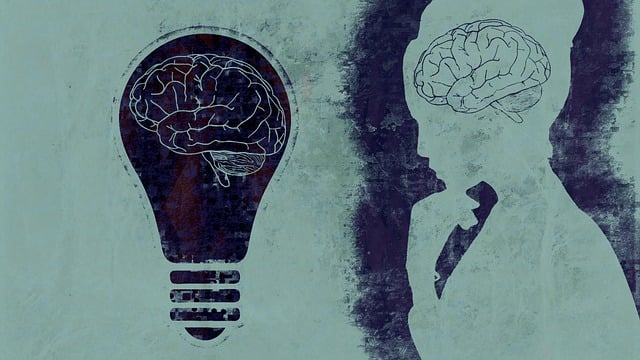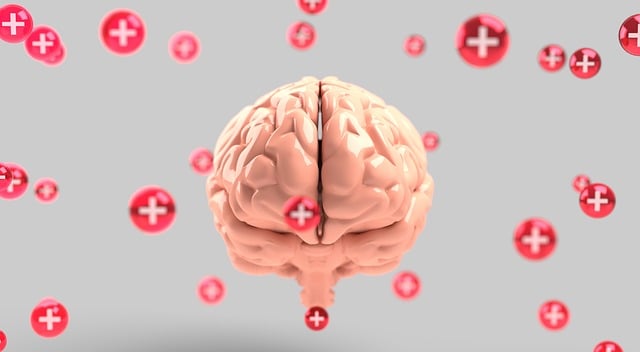Greenwood Village Interpersonal Issues Therapy (GVIIPT) focuses on teaching powerful emotion regulation techniques to empower individuals in managing intense emotions, building resilience, and improving self-esteem. Through mindfulness practices, self-awareness strategies, cultural competency training, and risk management planning, GVIIPT helps clients identify triggers, cultivate compassion, and develop robust self-care routines. Cognitive reappraisal and integrating self-care practices into daily routines are key tools for emotional well-being. Structured routines, positive thinking, and regular reflection ensure individuals remain equipped to handle interpersonal issues and foster healthier relationships over the long term.
Emotion regulation techniques are essential tools in navigating interpersonal issues, as highlighted by the Greenwood Village Interpersonal Issues Therapy approach. This article delves into the art of understanding and managing emotions effectively. We explore how identifying triggers and cultivating awareness serve as foundational stones for emotional well-being. Through practical strategies, we uncover methods to modify intense responses, fostering a sense of control. Additionally, we discuss integrating these skills into daily routines, ensuring sustainability and enhanced emotional resilience in various aspects of life.
- Understanding Emotion Regulation and its Importance in Greenwood Village Interpersonal Issues Therapy
- Identifying Triggers and Developing Awareness: A Cornerstone of Emotion Regulation Techniques
- Strategies for Managing and Modifying Emotional Responses
- Integrating Emotion Regulation Skills into Daily Life: Practice and Sustainability
Understanding Emotion Regulation and its Importance in Greenwood Village Interpersonal Issues Therapy

Emotion regulation is a cornerstone of Greenwood Village Interpersonal Issues Therapy (GVIIPT), focusing on individuals’ ability to understand and manage their emotional responses effectively. In today’s fast-paced world, where stress and mental health challenges are prevalent, GVIIPT empowers clients to navigate interpersonal relationships with greater ease. By teaching powerful emotion regulation techniques, this therapeutic approach enables individuals to enhance their overall well-being and foster healthier connections.
Understanding one’s emotions is the first step towards positive change. GVIIPT incorporates strategies that promote self-awareness, helping clients recognize and accept their feelings. This process often involves exploring cultural influences and enhancing cultural competency among healthcare providers through training, such as the Healthcare Provider Cultural Competency Training program. By integrating these insights, therapists support individuals in managing intense emotions, building resilience, and improving self-esteem—crucial aspects for effective interpersonal interactions. Additionally, risk management planning for mental health professionals is integral to ensuring a safe and supportive therapeutic environment, allowing clients to embrace their emotional journeys without fear of judgment.
Identifying Triggers and Developing Awareness: A Cornerstone of Emotion Regulation Techniques

Identifying triggers is a fundamental step in mastering emotion regulation techniques. It involves recognizing and understanding the cues or situations that often lead to intense emotional responses. Through mindfulness practices, individuals can develop heightened awareness of their senses, thoughts, and feelings, enabling them to identify triggers more effectively. This process is crucial for managing interpersonal issues as it allows one to anticipate and respond rather than react impulsively.
At Greenwood Village Interpersonal Issues Therapy, we emphasize the importance of this self-awareness in fostering better mental health. By learning to recognize personal triggers, individuals can begin to understand their emotional responses and develop strategies to navigate challenging situations more constructively. This includes exploring compassion cultivation practices and empathy-building strategies, which not only enhance relationships but also contribute to a robust self-care routine development for better mental health.
Strategies for Managing and Modifying Emotional Responses

Managing and modifying emotional responses is a crucial aspect of emotion regulation techniques teaching. One effective strategy involves cognitive reappraisal, where individuals learn to challenge their initial interpretations of events, thereby changing their emotional responses. For instance, instead of reacting with anger when faced with a frustrating situation, one can reframe it as an opportunity for growth or learning. This technique has been proven effective in various therapeutic settings, including Greenwood Village Interpersonal Issues Therapy.
Additionally, integrating Self-Care Practices into daily routines is vital for emotional regulation. Engaging in activities that promote relaxation, such as meditation, exercise, or spending time in nature, can help individuals manage stress levels and prevent depression. By fostering a sense of mindfulness and self-awareness, these practices enable people to better navigate their emotions and respond rather than react impulsively. This holistic approach, combined with evidence-based therapeutic methods, empowers individuals to take control of their emotional well-being.
Integrating Emotion Regulation Skills into Daily Life: Practice and Sustainability

Integrating emotion regulation skills into daily life is a crucial step in achieving long-term emotional well-being. The techniques learned in therapy, such as those offered at Greenwood Village Interpersonal Issues Therapy, should not be confined to the therapy room. Practicing these skills consistently helps individuals navigate their emotions more effectively in various settings and relationships. One effective strategy is to create structured routines that incorporate emotional healing processes. For instance, setting aside dedicated time for mindfulness exercises or journaling can help individuals process and regulate their emotions as they arise throughout the day.
Additionally, promoting positive thinking through affirmations and reframing negative thoughts can enhance emotional resilience. By combining these practices with consistent effort, individuals can develop sustainable habits that support their emotional well-being. Regular reflection on one’s progress and adjusting strategies as needed also plays a vital role in maintaining these skills over time. This ongoing process ensures that individuals remain equipped to handle interpersonal issues and foster healthier relationships.
Emotion regulation techniques, as integral components of the Greenwood Village Interpersonal Issues Therapy approach, offer powerful tools for personal growth and improved relationships. By understanding emotional triggers, learning effective coping strategies, and seamlessly integrating these skills into daily life, individuals can navigate interpersonal challenges with enhanced resilience and self-awareness. Through consistent practice, these techniques foster a deeper connection with one’s emotions, leading to more fulfilling and satisfying interactions in all aspects of life.













